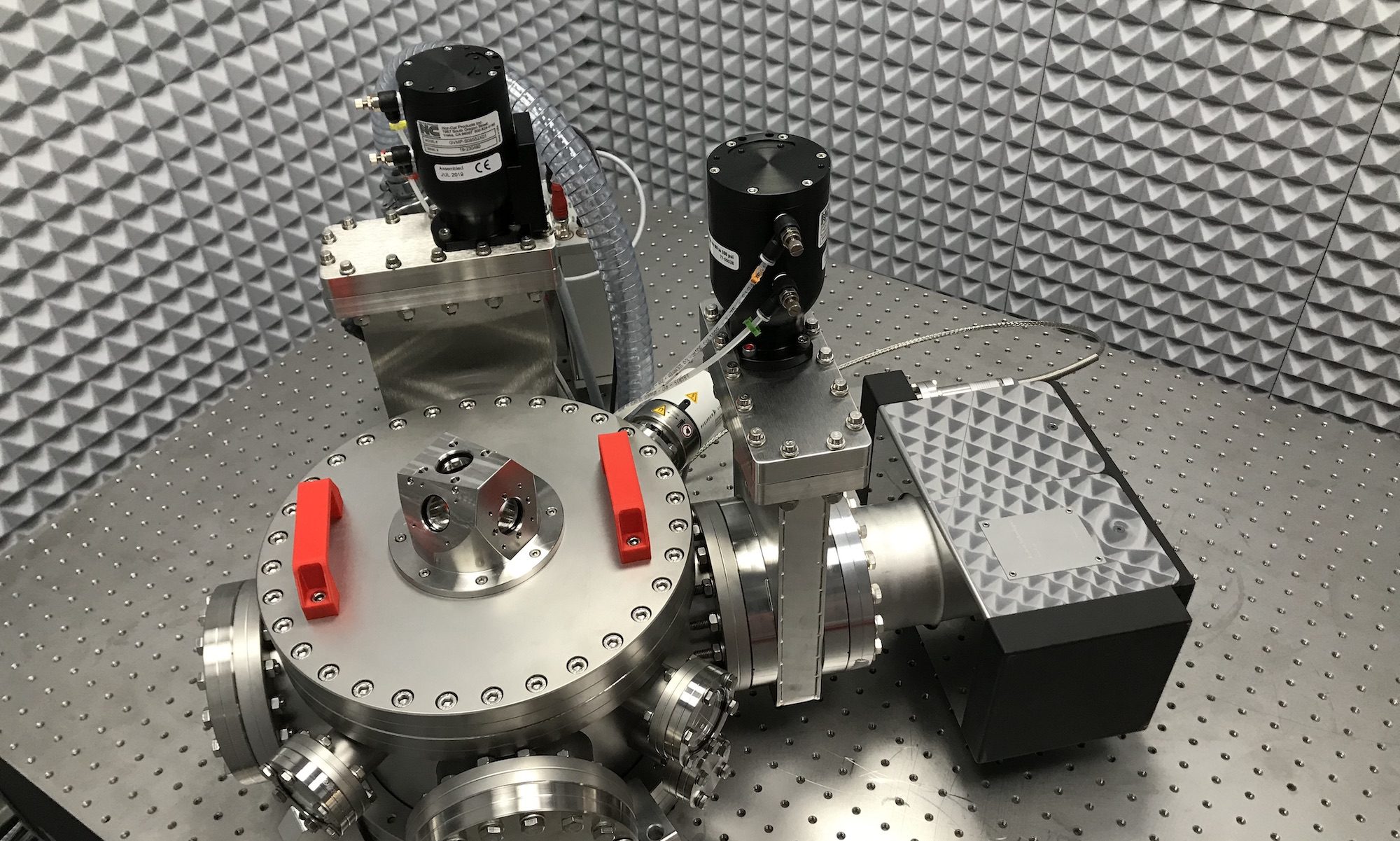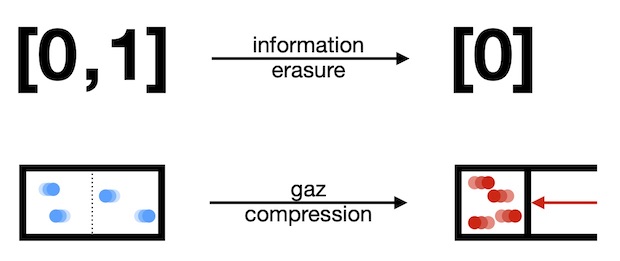Salambô Dago, PhD Thesis, Université de Lyon (2022)
hal: tel-03771837
This thesis extends by theoretical and experimental studies our understanding of the dynamics of systems ruled by thermal fluctuations in order to better control them and, in particular, use them as 1-bit logic gates. This work falls within the framework of out-of-equilibrium statistical physics and of thermodynamics of information based on stochastic thermodynamics. In this respect, we study the minimal work required to perform irreversible operations on 1-bit of information ([RESET] to 0 or 1), or reversible ones ([NOT] operation), and we aim to optimise the energetic cost and the speed of these processes. Our strategy to enhance the processing efficiency and speed consists in using as 1-bit memory a low dissipation micro-mechanical oscillator, therefore evolving at much smaller time-scales than the over-damped test systems used to date (colloidal particles in solution). The feedback control designed to create a virtual energy potential in which evolves the micro-resonator is a major step forward in coding and handling the 1-bit information: it represents the fastest and most energy-efficient device among those which perform logic operations at the thermal energy scale. We furthermore provide a solid theoretical basis, validated by experimental and numerical simulation results, to model energy exchanges. Taken as a whole, this work results in the theoretical prediction of the energetic cost of any logical operation and opens perspectives for information processing optimisation in term of reliability, speed and energy saving.

